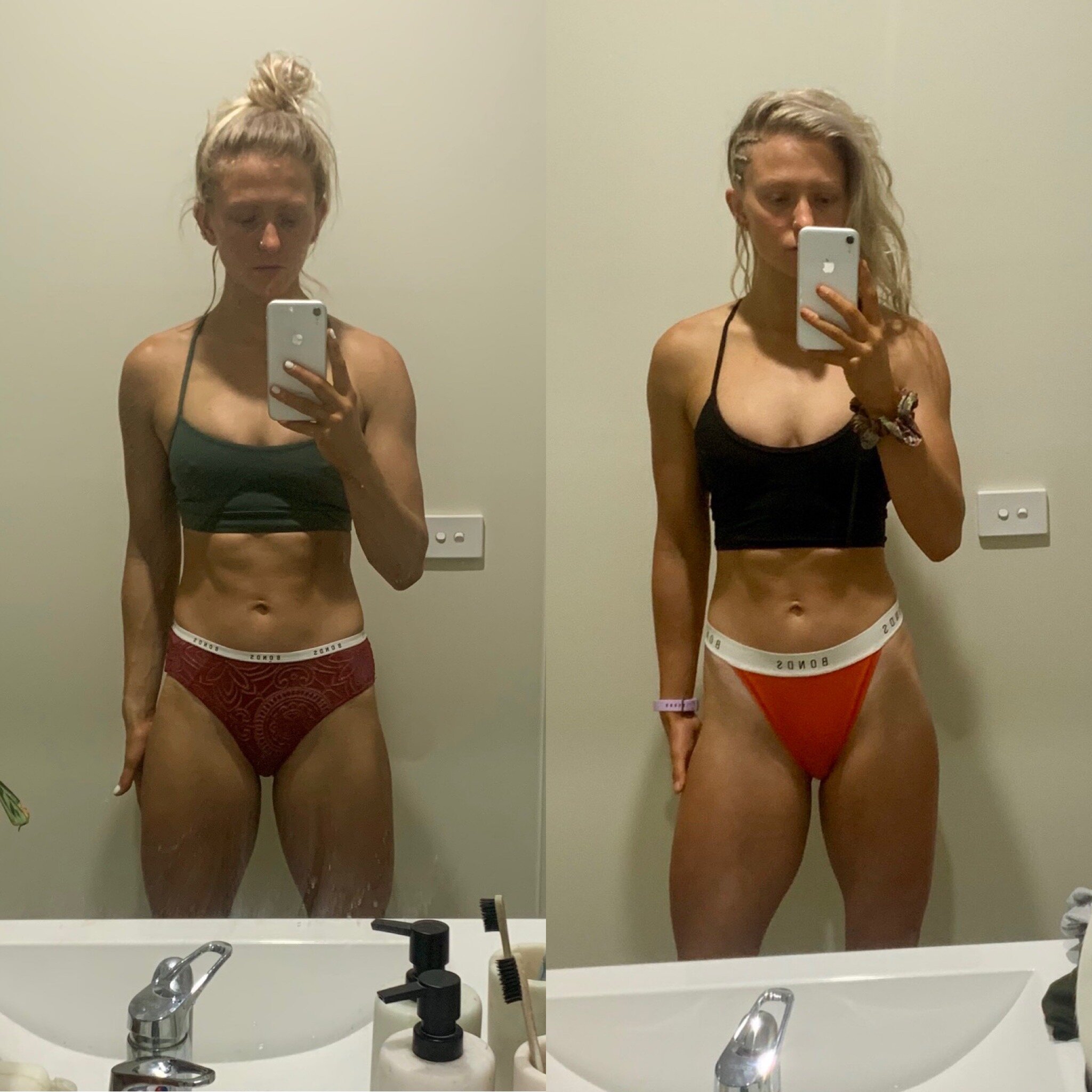blog
Welcome to my blog. Thanks for being here.
I like to write a lot. Mostly about powerlifting, strength training, body image + women in sport. They’re kinda my things.
If you ever have questions or want to learn more, please reach out. I would love to hear from you.
Billie x

Powerlifting, Plant-Based Diets & Macro-Tracking: Tips for Women Who Want to Lift Heavy & Eat Less Meat!
I was recently invited for a virtual interview with The Strength Dietitian, Valentina Duong — someone whom I admire immensely. We spoke about (as the name suggests) powerlifting, plant-based diets and macro tracking. She and I share many similar views on the role of nutrition in strength sports, recreational sports and maintaining a high quality of life. With her thought provoking questions, I really enjoyed this interview.

10 Things I've Learned In Five Years Of Vegetarianism
It’s five years this month since I started removing meat from my diet. Mind blowing to me. I do get asked a lot about my diet — how to go about cooking, socialising, training, getting enough protein, supplementing, etc. They are all great and important questions. In this article, I’ll go through some of the most valuable things I’ve learned in the last five years, relating to training, performance, body composition, health, creating change and not burdening everyone around you with god-forbid your ethics.

Diet Tips
We can yell “calorie deficit” at the people til the cows come home, but along with the psychological component (which is way deeper than is given credit), weight manipulation is a skill. There are however, plenty of tips and tricks we can employ to make losing fat or building muscle easier for ourselves.

Metabolic Adaptation is F*cking with my Fat Loss - Now What?
In my last article, I spoke about the myth of “survival mode” and what is actually going on when you’re eating very little, but still not losing weight. But, the battle is not lost and there are certainly strategies we can employ to mitigate these effects and keep us moving towards our body composition goals.

Survival Mode Isn't a Thing
… but your body does change when you lose weight.
Way back when our ancestors had to hunt for their meals, food availability was unpredictable. Some times they caught dinner; some times they did not. Therefore, storing body fat was favourable, as it provided an energy source in times of famine, when dinner wasn’t being served up.
We don’t really need this in a first world food environment. We can access food pretty effortlessly [unless Karen has been panic buying] from the supermarket / our pantries whenever we damn well want — but try telling that to evolution.
So now, the human body has adapted mechanisms to prompt the storage of body fat, you know, just in case. These adaptations can throw a spanner in the works of our weight loss efforts, so it’s worth understanding what they are, how they happen and most importantly, what we can do about it.

How Weight Loss Works
Many people that want to lose weight, don’t understand how. Many who have successfully lost weight, don’t understand how they did it. There are many methods by which to lose weight, any number of them can work, but the problem, and the ring a round, and the yo-yoing stems largely from a lack of understanding of the principles that govern weight loss.
![Tracking Your Macros [Accurately]](https://images.squarespace-cdn.com/content/v1/62fb3bfe41f3053b73c1217e/1662630792313-VPYP9UB6QAZA2TSP502D/image-asset.jpeg)
Tracking Your Macros [Accurately]
Macro tracking is not the be all end all holy grail of weight management. But it is a really powerful tool when used correctly. When being mindful about the data you enter, you are able to develop quite a thorough understanding of the nutritional value of the various foods that you eat. This practiced over a period of time will enable you to make informed food choices for the rest of your life, long after you stop using the app.
If you are relatively new to tracking your macros or have never really been shown how to use a macro tracking app such as MyFitnessPal effectively, the following article will provide you with some helpful practices that you can apply right away to improve the accuracy of your tracked data and ultimately your success with any nutrition intervention going forward.

